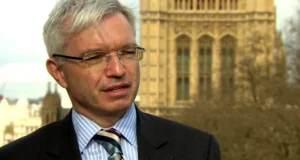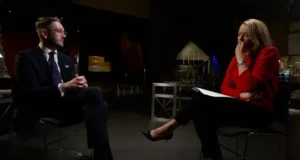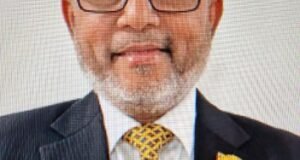 Foyjur Rahman (44) of Parfett Street, Whitechapel, originally form khagail (asir khal) village of Golapgonj was found guilty on 15th of July at the Old Bailey of the murder of Abdus Samad Kamal in 1997.
Foyjur Rahman (44) of Parfett Street, Whitechapel, originally form khagail (asir khal) village of Golapgonj was found guilty on 15th of July at the Old Bailey of the murder of Abdus Samad Kamal in 1997.
He was subsequently sentenced to life imprisonment with a minimum of 18 years at the same court this afternoon.
Mr Samad suffered horrific injuries after being attacked with weapons including a machete, meat cleaver and baseball bat in the attack in Islington
Investigating officer Detective Sergeant Nick Miller, of the Homicide and Major Crime Command, said: “It has taken many years but I am very pleased that a jury convicted Rahman for his part in this violent murder.
“Mr Kamal’s family have never given up hope of seeing those who killed a loving husband and father brought before the courts and I can only praise their dignity during this long process.
“This case clearly demonstrates the Met’s commitment to pursuing offenders who think they can evade capture by fleeing the country after committing their crimes.”
Abdus Samad, a 25-year-old Bangladeshi man from Brick Lane, E1, was married with two young daughters. He was known as Kamal to his friends and family. At the time of his death he ran his own take away business, ‘Curry in a Hurry’, based in St Pauls Road, Islington.
On the night of Wednesday, 21 May 1997, a public telephone kiosk was used to place a bogus order to be delivered to an address in Alwyne Road, Islington. Mr Samad was dispatched with the food and parked his car near the property.
As soon as he got out of his vehicle Mr Samad was chased into Alwyne Villas by two or three masked suspects and viciously attacked with a variety of weapons.
Police and paramedics were called at 22:37hrs and Mr Samad was taken to Whittington Hospital where he died at approximately 01:50hrs on Thursday, 22 May. A post-mortem examination that day at St Pancras Mortuary gave cause of death as multiple stab wounds.
After the murder Rahman swiftly left the country, flying to the United States on 23 May 1997.
In March 2012, Mohiuddin Bablu, then 38 (05.09.74), of Hason Fatima Pur (Asol), Jogannathpur, Sylhet, was sentenced to life imprisonment for the murder of Mr Samad with a recommendation he serve a minimum of 18 years in Britain. He had fled to Birmingham and then Bangladesh after the murder but was eventually brought back to face trial.
Further enquiries and forensic work was carried out following Bablu’s trial. DNA found on a makeshift mask discarded at the scene proved a match for Rahman’s. His fingerprints were also found on a bag used to bring weapons to the location.
Rahman was extradited from the US and arrested by Met officers on his arrival at Heathrow Airport on 27 January 2016. He appeared at Uxbridge Magistrates’ Court the following day.
The motive for Mr Samad’s murder was a dispute between two Bangladeshi groups, one from the Stoke Newington area and the other from Brady Street, E1. The Brady Street group sexually assualted a young girl from Stoke Newington area.
Foyjur Rahman was part of the attacking party which also included of 4-5 other British Bangladeshis.
This had escalated into a series of incidents and fights – the victim was approached by the Brady Street group to act as a go-between to try and sort matters out. Kamal did not want to be involved.
When he refused, the suspects plotted to kill him, luring him to a quiet residential address and carrying out the attack.
In an extract from a victim impact statement, Mr Samad’s family said: “There is not a single day that passes when Kamal and the incredibly violent way in which he died is not in our thoughts. Our loss is permanent. All of us have nightmares over the horror of the death.
“Kamal’s generosity of spirit remained with him until his last moments. It was no surprise to hear that, whilst he had suffered such horrific injuries, he warned by-standers to stay away as the men who had attacked him were dangerous. Few of us here would have the courage to try and protect others while under such a barbaric attack. It takes someone with a lot of heart to do this in his dying moments. But that is how we remember our son, brother and friend: as one of the most honourable of any of us, putting the safety of others before himself.”
Kamal has two daughters, the eldest aged 23 has graduated from Queen Mary University and works for Oxfam, a charity organisation working for poverty relief in the third world. His youngest daughter is studying her degree in bio chemistry at Queen Mary University.
Kamal is described by his family and people that know him as loving, caring and very likeable within the community. He was committed in running his business and raising his family.
 Weekly Bangla Mirror | Bangla Mirror, Bangladeshi news in UK, bangla mirror news
Weekly Bangla Mirror | Bangla Mirror, Bangladeshi news in UK, bangla mirror news






